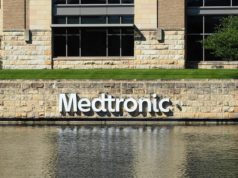A study published in the Journal of Cardiac Surgery, detailing 18 out of a group of 19 patients who had contracted COVID-19 whilst recovering from cardiac surgery, found that the course of the infection was “surprisingly benign” within this group.
The study described the baseline, operative, and postoperative features of the patients, all of whom were discharged following cardiac surgery at the Unit of Cardiac Surgery at Careggi University Hospital in Florence, Italy in March and April 2020.
Patients were discharged to a rehabilitation facility following their procedure, which the study’s authors, Alfredo Cerillo (Unit of Cardiac Surgery, Careggi University Hospital, Florence, Italy) and colleagues, describe as a “hotbed of severe acute respiratory syndrome coronavirus 2 (SARS‐CoV2) infection” shortly after admission of the patients on 17 April .
However, outlining the treatment pathway and the course of the disease among these patients (mean age 70), Cerillo et al express surprise at the seemingly mild impact of COVID-19 on the group.
“Surprisingly, the SARS‐CoV2 infection had a benign course in this cohort: six patients were completely asymptomatic, and most of the remaining patients had only mild symptoms. Only seven patients had fever (>38°C in six), and a significant rise in the C reactive protein levels was recorded in only five of them. A single patient complained of dyspnoea. Seven patients were hospitalised,” they note.
Three patients received antivirals, they document, three received azithromycin, and five received empirical therapy with hydroxychloroquine.
Only one patient in the group needed admission to a COVID‐19 intensive care unit (ICU) for dyspnoea and mild hypoxaemia, which was treated by continuous positive airway pressure, the study notes. The remaining 11 asymptomatic or mildly symptomatic patients were discharged home or to a COVID‐19 hotel, and at the latest follow‐up (31 October), all patients had been discharged home.
Considering the likely cause of these outcomes, Cerillo and colleagues suggest that a significant influence may be chance, writing: “Given that the true prevalence and mortality rate of the SARS‐CoV2 infection is not known, it is possible that the low rate of symptoms and complications was simply due to chance.
“Indeed, all patients—not only those with a clinical suspect of COVID‐19—were tested in the rehabilitation clinic, and this could have maximised the sensitivity of the screening programme. However, the prevalence of severe comorbid chronic diseases and risk factors was extremely high in our cohort, increasing the theoretic risk of a severe COVID‐19. In fact, data from other series of perioperative COVID‐19 in cardiac surgery showed ubiquitous pulmonary complications and very high mortality rates.”
But, they speculate that an attractive hypothesis is that the patients were “protected” from the disease, in particular due to the administration of low-molecular heparin during the perioperative period, or potentially due to anticoagulation.
They write: “While the potential protective role of a blunted immune response and/or of the anticoagulant therapy may only be speculated, our population offers an interesting view on a delicate aspect of the COVID‐19 pandemic, that is, the occurrence of a cluster of infections in a group of high‐risk hospitalised patients. Eighteen out of 19 exposed patients were infected, highlighting the contagiousness of the disease. The timing of the infection is also of interest. All our patients came in contact with the SARS‐CoV2 postoperatively, after 10.0±4.8 days, while the previous series included cases of preoperative infection and/or early postoperative infection: this could explain the severity of the perioperative COVID‐19 observed by others.”
Noting the limitation of the study, due to its small population, the study team suggests that the observations could support the importance of an aggressive screening to rule out a preoperative infection—and to postpone the operation in positive patients whenever possible—as well as suggesting that anticoagulation could help to prevent the development of severe COVID‐19 in these patients.
“Further studies are needed to investigate the relationship between the surgery‐induced inflammatory response, anticoagulation, and severity of COVID‐19,” they note.













